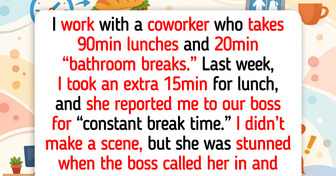Stand your ground don’t get sucked back into being the ATM, your parents can downsize.
I Refused to Support My Parents After Years of Neglect—I’m Not Their Retirement Plan
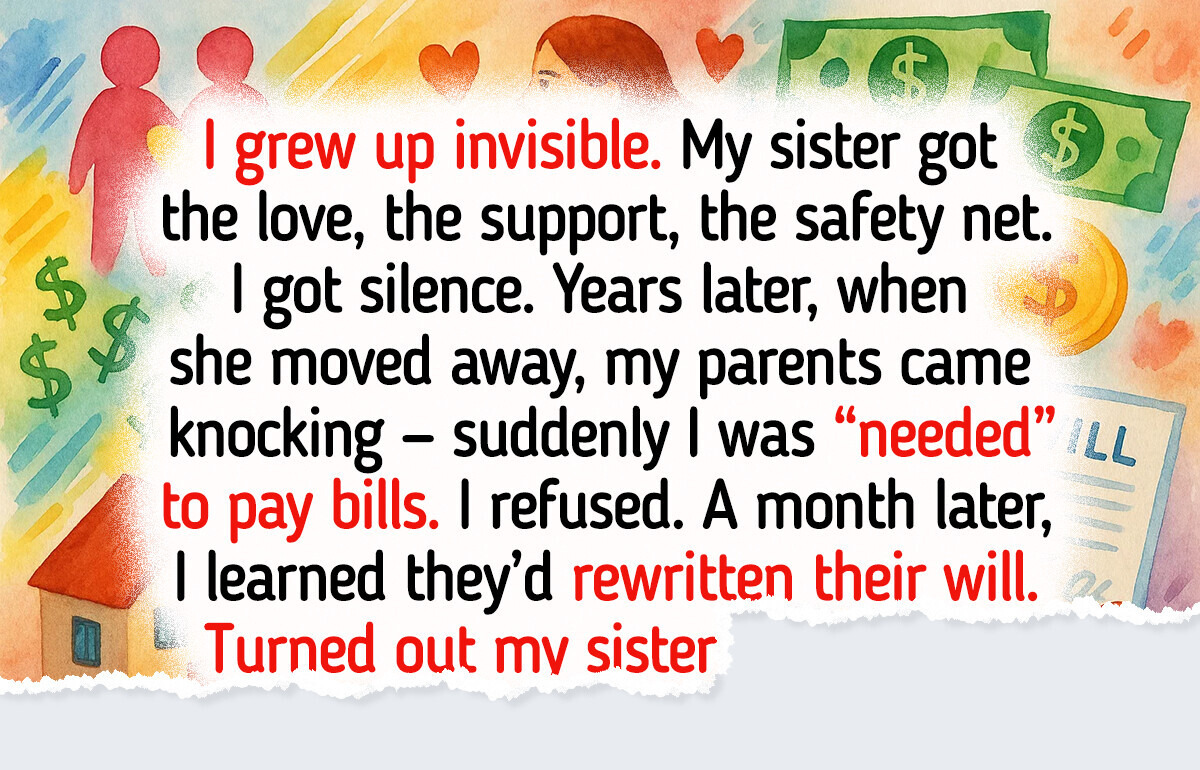
This story was shared with us by one of our readers. Growing up, she often felt overlooked and undervalued by her parents, who poured their time, money, and affection into her sibling instead. She learned to survive on her own, without the support most children expect from family.
Years later, the tables turned.
The letter:
Hi Bright Side team,
I grew up being the “easy kid.” Translation: ignored. My sister was the golden child — she got the new clothes, car at 16, college paid for. I got hand-me-downs and “you’ll figure it out.”
Anytime I spoke up, I was told I was “independent” and “didn’t need as much.” It hurt, but I learned to survive on my own.
Fast-forward: my sister moved across the country, and suddenly my parents realized they’d burned out their favorite. That’s when they turned to me. Calls, texts, guilt trips: “We’re older now, we need help with bills, with the house. Family takes care of family.”
I told them flat out: “Family also takes care of you when you’re a child. You made your choice then. Don’t make me your backup plan now.” They called me selfish and cruel. I braced for them to cut me off completely.
A month later, I found out they’d rewritten their will... leaving the biggest part to me. Apparently, my sister told them she was “done” supporting them. Now they expect me to forgive decades of neglect because I’m the only one left.
And the truth? I don’t even know if I want their inheritance.

Setting right healthy boundaries with parents.
Humans are wired to tie a piece of their self-worth to how they’re treated by others — especially family. Psychologists call this relationship-contingent self-esteem: when a person’s sense of value depends heavily on their relationships. Those high in RCSE tend to experience bigger emotional swings in response to relationship events — praise lifts them high, criticism or rejection knocks them low.
In your story, when your parents suddenly needed help, they shifted from neglect to demand — and your refusal challenged the very foundation of how they measured their worth in you. That kind of shift can feel threatening to someone whose esteem is tied to role fulfillment (e.g. “I’m the parent they lean on”). Studies suggest that people with contingent self-esteem are more reactive to perceived relational threats or failures.
Takeaway: Your boundary may have hit a nerve not because of the money itself, but because your parents (or at least one of them) may unconsciously use your role as caregiver to validate their own value. Standing firm wasn’t just financial — it was psychological.
Psychological tips to stay grounded & protect your boundaries.

Build non-contingent self-worth
Don’t tie your value to how others treat you. Research on relationship-contingent self-esteem (RCSE) shows that people who base their self-worth on how their partner (or family) treats them experience stronger emotional ups and downs in response to relationship events.
Tip: Cultivate your self-worth through things independent of others — your values, skills, passions, and inner strengths. Remind yourself: I am worthy, even if I refuse demands that don’t serve me.
Spot entitlement early and name it
Entitlement in relationships often looks like “I deserve this” or “You owe me this” without real dialogue or fairness. According to Psychology Today, destructive entitlement can show up as guilt trips, demands, or justifications of unfair behavior.
Tip: When someone acts entitled, mentally label it (in your head or journal): “That demand felt like entitlement.” Naming it reduces its power and helps you respond (rather than react).
Set limits using “I” statements
The concept of entitlement schemas encourages self-reflection and communication without blame.
Tip: Use statements like “I feel overwhelmed when I’m asked to give beyond my means” or “I need time to think before committing.” This frames your boundary without escalating into conflict.
Practice emotional distancing (not coldness, just clarity)
When someone responds with guilt or anger to your boundaries, it often means they feel their expectations were threatened. Because RCSE makes people more reactive to negative relationship events, those with high RCSE may blow up when their sense of entitlement is challenged.
Tip: When faced with emotional pressure, pause. Breathe. Remind yourself: “Their reaction is about their expectations, not about my worth.” Don’t try to immediately justify or explain everything.
Surround yourself with validation outside that relationship
Because “reflected appraisal” is how we often internalize others’ views of us, negative treatment by a parent or partner can deeply wound our self-image.
Tip: Seek support from friends, mentors, therapists. Their approval and encouragement can help you counterbalance toxic messages from unhealthy relationships.
Seek professional support to break patterns
Therapeutic approaches (like schema therapy) help uncover entitlement origins, rebuild empathy, and strengthen healthy boundaries.
Tip: If guilt, self-doubt, or family pressure feels overwhelming, a therapist can help you reprogram your emotional responses and maintain your integrity.
At the end of the day, family is about love, respect, and support — not about demands or entitlement. Learning to set boundaries doesn’t make you selfish, it makes you strong. And sometimes, the bravest thing you can do for yourself is simply to say: “No.”
20 People Who Proved That the Kindest Hearts Wear the Strongest Armor
Comments
The funny thing about legal wills is they can be changed often and drastically.
It's confusing that they insist they need your money to survive but yet they pretend there is something worth inheriting for you. Your parents are not honest. Do not give them any money at all because more than likely they are lying about their will. People don't normally change much when they get older unless they get worse than they were before.
Even if by some miracle, they make stipulations in their will for you to inherit something, it's likely there's not going to be anything left to inherit.
wow
Related Reads
My Family Always Prioritized My Sister—Then Expected Me to Help Them With Medical Bills
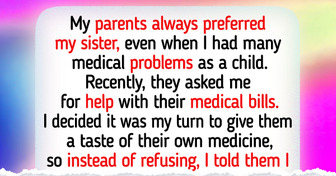
I Refuse to Support My SAHM Wife After Discovering Her Secret

10 Times Kids Spilled Family Secrets and Shocked the Entire Room

I Refuse to Return My Late Colleague’s Paycheck, Now His Widow Is Furious

I Refused to Give Up My Baby, So My Mom Exposed a Terrible Secret

I Refuse to Let My MIL Be in My Life, So I Gave Her One Last Payback
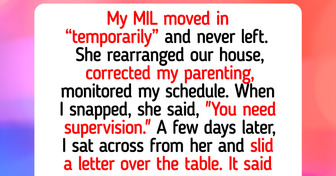
15 People Who Stay Kind Even When Their World Is Falling Apart
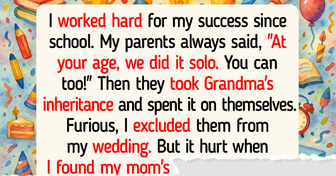
12 Stories That Prove Real Kindness Is About Actions, Not Words

15 Times People Refused to Be Mean—And Kindness Proved More Powerful
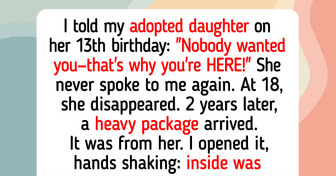
15+ Stories That Remind Us the World Isn’t as Cold as It Seems

I Refused to Let My Boyfriend Discipline My Child—He’s Not His Real Dad
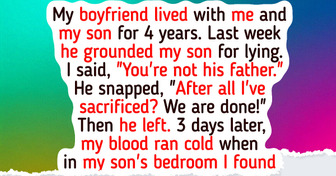
I Refused to Be Called the Office Villain by a Coworker Who Barely Works
